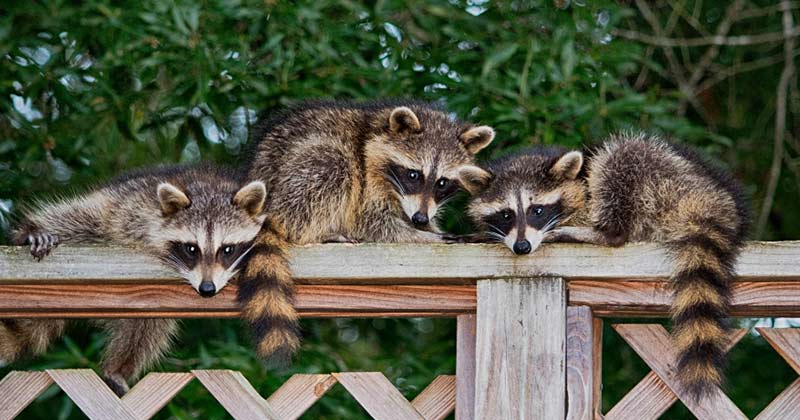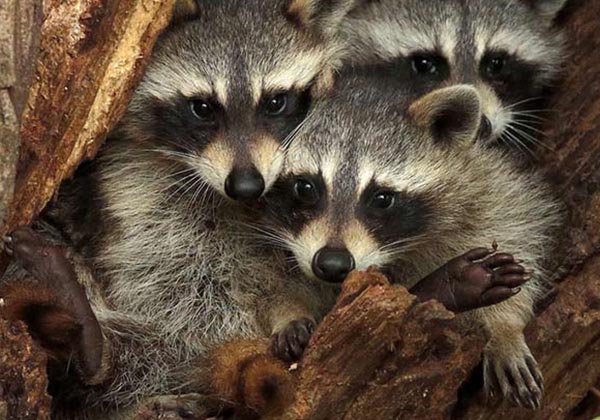Raccoons do not just act differently but lead completely different lives in the wild or rural areas versus in a city. The actual age a raccoon can reach is more than 20 years old. This is shortened in the whiled to around 5 or 10, in urban environments with all its dangers the years they can live drops to 3, some lucky raccoons get up to 5 years old before they are inevitably hit by a car. That is the most common way a raccoon can die in the city. It is not infrequent. Urban raccoons, unlike wild ones, have a far more elegant diet. With food dumped in the garbage fresh from a restaurant plate, many raccoons do not have to resort to carry-on feeding, at least in their adulthood. That is why the number of adult raccoon roundworms is lower by 20% than they are for younger raccoons that have just left the nest. This is a demonstration of the danger of wild raccoons in rural areas. They are the most likely raccoons to have roundworm and rabies as they can interact with other wildlife and they will most certainly have a diet of mainly carry-on which are long dead animals already partially or mostly eaten by the predator that killed them. The raccoon, especially young ones will consider this a meal as they are not as good as older raccoons at finding fresher, better tasting and healthier food.

Raccoons in all areas and walks of life are constantly looking for food. With their adversarial nature and their behavioural intent on killing the babies of other male raccoons the concept of domain is very important to raccoons and wandering into another’s domain can result in death at the hands of a much larger, older and scarier raccoon. This increases the likely hood of early death making it very difficult for a new raccoon to survive in this already overpopulated urban landscape. The best thing you can do is to keep animals off your property, whether they are there to die, to find food or water or simply to find shade or a cool place to sleep. They will come to your property and they will inspect it for food. If there is no food or water, and no shady places to sleep. They will likely leave, abandon your property and move on to someone else who has accessible food and water on their property. Either way, removing access to such things by removing vegetable gardens and fruit trees, bird feeders and baths and sealing your garbage and storing it indoors can have a huge effect on animals coming onto your property and staying.

